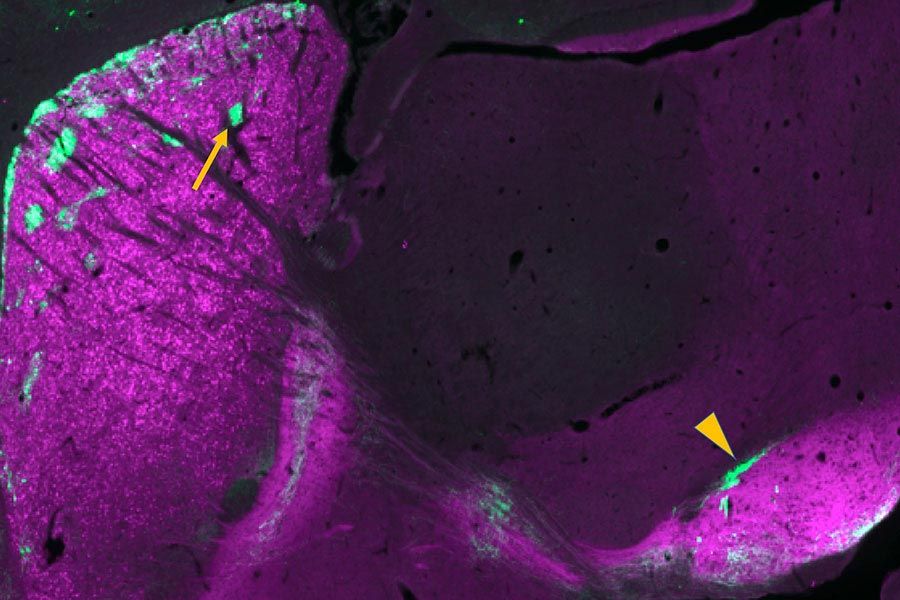“Our new data suggest that the upregulation of Neuregulin-responsive genes in animals with severely repetitive behaviors reflects gene changes in the striosomal neurons that control the release of dopamine,” Crittenden explains. “Dopamine can directly impact whether an animal repeats an action or explores new actions, so our study highlights a potential role for a striosomal circuit in controlling action-selection in health and in neuropsychiatric disease.”
Graybiel lab identifies genes linked to abnormal repetitive behaviors often seen in models of addiction and schizophrenia.
Extreme repetitive behaviors such as hand-flapping, body-rocking, skin-picking, and sniffing are common to a number of brain disorders including autism, schizophrenia, Huntington’s disease, and drug addiction. These behaviors, termed stereotypies, are also apparent in animal models of drug addiction and autism.
In a new study published in the European Journal of Neuroscience, researchers at the McGovern Institute for Brain Research have identified genes that are activated in the brain prior to the initiation of these severe repetitive behaviors.
